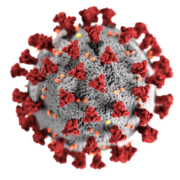Israeli Prime Minister Benjamin Netanyahu said Tuesday that he would recommend his Cabinet adopt a United States-brokered ceasefire agreement with Lebanon’s Hezbollah, as Israeli warplanes struck across Lebanon, killing at least 23 people.
The Israeli airstrikes and evacuation warnings were in a sign that Netanyahu aims to inflict punishment on Hezbollah in the final moments before any ceasefire takes hold. Hezbollah, meanwhile, had resumed its rocket fire into Israel, triggering air raid sirens across the country’s north.
More than 3,760 people have been killed by Israeli fire in Lebanon the past 13 months, many of them civilians, according to Lebanese health officials. The bombardment has driven 1.2 million people from their homes.
Hezbollah began attacking Israel on Oct. 8, 2023, a day after Hamas’ attack on southern Israel, in support of the Palestinian militant group. That has set off more than a year of fighting escalated into all-out war in September with massive Israeli airstrikes across Lebanon and an Israeli ground invasion of the country’s south. Hezbollah has fired thousands of rockets into Israeli military bases, cities and towns, including some 250 projectiles on Sunday.
It’s not clear how the ceasefire will affect the Israel-Hamas war in Gaza, where more than 44,000 people have been killed and more than 104,000 wounded in the 13-month war between Israel and Hamas, according to Gaza’s Health Ministry.
———
Here’s the Latest:
Netanyahu recommends his Cabinet approve a Hezbollah cease-fire proposal
JERUSALEM — Israeli Prime Minister Benjamin Netanyahu said Tuesday that he would recommend his Cabinet adopt a United States-brokered ceasefire agreement with Lebanon’s Hezbollah, as Israeli warplanes struck across Lebanon, killing at least 23 people.
The Israeli military also issued a flurry of evacuation warnings — a sign it was aiming to inflict punishment on Hezbollah down to the final moments before any ceasefire takes hold. For the first time in the conflict, Israeli ground troops reached parts of Lebanon’s Litani River, a focal point of the emerging deal.
In a televised statement, Netanyahu said he would present the ceasefire to Cabinet ministers later on Tuesday, setting the stage for an end to nearly 14 months of fighting.
Netanyahu said the vote was expected later Tuesday. It was not immediately clear when the ceasefire would go into effect, and the exact terms of the deal were not released. The deal does not affect Israel’s war against Hamas in Gaza, which shows no signs of ending.








